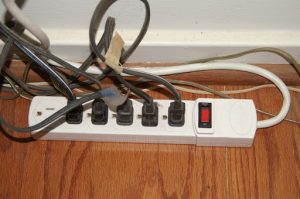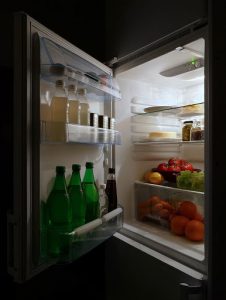By Brian Rohde, Search Inc’s Energy Force Ambassador and former No Boundaries participant
The ComEd Energy Force Ambassador Program was the country’s first energy-efficiency education program taught by people with disabilities. This program benefits the public, as well as the Ambassadors.
As an Ambassador, I share energy- and money-saving tips with the greater Chicago community at places like zoos, park districts, libraries and agencies. At the same time, engaging with the public as an Ambassador has helped build my public speaking and social skills.
Since my childhood, I’ve had a strong passion for environmental and energy conservation. Putting my passion together with my commitment to reinforcing the achievements I have made as an Ambassador drives me to enhance my social skills with the public and the community. As a result, I have been able to convey ComEd’s message of spreading awareness of energy conservation with a high level of self-confidence.
Because of the pandemic, ComEd has put community outreach on hold. Ambassadors like me are not able to present or attend events like we normally do. Since I cannot engage with people face-to-face, I want to share important key energy savings tips that you can utilize in your homes as a way to be energy conscious.
Below are my top 3 tips:
- Use Power Strips
With the advance in technology, people depend on computers, smartphones, televisions, and video game systems as a way of living. Plus, with the stay at home order, people are using these devices even more to keep busy and stay entertained. However, many people don’t realize that these devices still use power when they are turned off. The power strips allow you to plug in multiple devices at one time instead of having to use multiple outlets. In addition, the strip allows you to turn off all the devices that are not in use by just pressing the red button. There are also advanced power strips that can program your electronic devices to power off when not in use. Most importantly, using power strips are beneficial to entire communities. By saving energy consumption, the flow of electricity to power homes is more sustainable for the future.
- Use Energy Efficient Bulbs
The simplest way to conserve energy may seem obvious – turning off lights when you leave the room. But choosing the right bulbs are an important factor to consider in order to be more energy efficient. Make sure to select bulbs that are labeled “energy star.” These are either the CFL (carboflorescent) or the LED (light emitting diode) bulbs. The LED bulbs consume less energy and can last 15 times longer than incandescent bulbs. This allows you to save on electricity and change bulbs less frequently. Another advantage to using LED bulbs is that ComEd offers discounts for using them.
- Set Refrigerator at Right Temperature
The refrigerator is one of the key household appliances that can cost you less if you manage the temperature settings correctly. Keep the temperature setting between 35 and 38 degrees. This will keep your food and drinks fresh and possibly cut down on the need to go to the store.
You also want to make sure your refrigerator is working properly. Older refrigerators that are less efficient will add to your electricity bill.
The most convenient way to get rid of older refrigerators that are not working is to contact ComEd. They will pick up and recycle it for free in an environmentally friendly way and will send you $50!
Brian Rohde graduated with honors from Valparaiso University with a BA in geography in 2014. He has been a ComEd Energy Force Ambassador for Search Inc since 2016.








2 Comments
Very helpful tips.
Are there efficient bulbs that are not hard on the eyes?